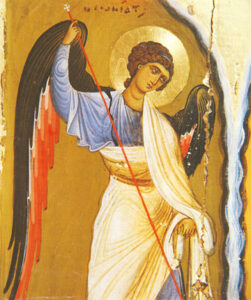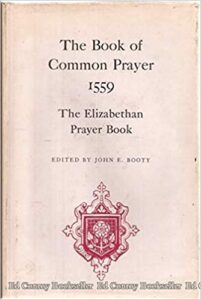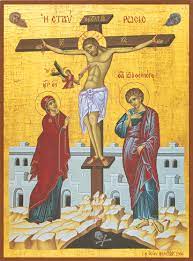 Before we get started: Last week’s Post dealt with the “dark side” of the spiritual world. But now the Orthodox Church shows us some of the “bright side of the other side”:
Before we get started: Last week’s Post dealt with the “dark side” of the spiritual world. But now the Orthodox Church shows us some of the “bright side of the other side”:
1 On November 8 we celebrate the feast of The Archangels Michael and Gabriel and All The Bodiless Powers of Heaven. If you wish, take a look at Posts 38 and 39: https://frbillsorthodoxblog.com/2017/11/10/38-bodiless-powers-heaven-part-one/ and https://frbillsorthodoxblog.com/2017/11/17/39-bodiless-powers-heaven-part-two/
![]() 2 November 9 if the feast of the wonderful Saint Nektarios, whom I love more than I can tell you. If you don’t know him, please go to: https://frbillsorthodoxblog.com/2018/11/09/91-saint-nektarios-his-life-death-and-what-happened-after-that/
2 November 9 if the feast of the wonderful Saint Nektarios, whom I love more than I can tell you. If you don’t know him, please go to: https://frbillsorthodoxblog.com/2018/11/09/91-saint-nektarios-his-life-death-and-what-happened-after-that/
Introduction
For the most part this will be not a scholarly paper, but rather a sort of meditation based on my living with and pondering this holy Prayer for seven decades, now. If you want to dig deeper, at the conclusion of today’s Post I’ll provide a couple of suggestions about where to find some longer, more scholarly articles on the Our Father.
The Universality of the Lord’s Prayer
Here’s the first thing to be said about this Prayer: It is recited by all Christians in the world – about 2.5 billion of us now. We Christians are divided, often for justifiable reasons, but this Prayer unites us, praise God.
The Text
Here’s something odd: Almost all Christians in English speaking lands use the same archaic Elizabethan language: “Our Father, who art in heaven, hallowed be Thy name. Thy Kingdom come…” and so on. Why? It’s  derived from a 16th century translation, made for use in the Church of England’s Book of Common Prayer. English people brought it to North America, where it was “modernized” from “Our Father which art in Heaven” to “Our Father who art in Heaven”. Then as people came here from other lands and eventually began to worship in English, they appropriated that standard English version. And so today we Orthodox still say the Lord’s Prayer in archaic language
derived from a 16th century translation, made for use in the Church of England’s Book of Common Prayer. English people brought it to North America, where it was “modernized” from “Our Father which art in Heaven” to “Our Father who art in Heaven”. Then as people came here from other lands and eventually began to worship in English, they appropriated that standard English version. And so today we Orthodox still say the Lord’s Prayer in archaic language
availble from Amazon, of course
Why don’t we change the Lord’s Prayer into contemporary English? Because it’s one of the few prayers almost everyone knows by heart. People can pray it together instead of struggling over words, and they understand the old language. So why change it?
This is why: “Thee” and “Thou” do not describe our true relationship with God. Originally they did. In 16th century English, they were the “familiar” form reserved for family and close friends, fiances and spouses. In Elizabethan English, “You” and “Your” were “formal” usage, for people in more distant relationships. Sometimes Shakespeare, in the same dialog, changed forms, as he discovered that the person he was speaking to was not a scoundrel (“You”) but a loved one in disguise (“Thou”). As late as 1850, Elizabeth Barrett Browning began this sonnet, addressed to her husband: “How do I love thee? Let me count the ways.” She definitely was not trying to keep her distance!
Language changes. Today “Thee” and “Thou” have disappeared from popular use, except in church. Many people now think “Thee” and “Thou” describe the majesty and grandeur of God, His distance from us. No! That’s exactly what they were not intended to communicate. Today “You” and “Your” better express our intimate relationship with God who loves us, and Whom we love. We now should be praying “Our Father in Heaven, hallowed be Your Name. Your Kingdom come…” But will we make the change? I doubt it.
“Pray this”? or “Pray like this”?
 This, the only Prayer our Lord gave to us, is found in two of the Gospel accounts: Matthew 6:9-13 and Luke Luke 11:2-41. And there (did you ever notice?) His directions for usage are not the same.
This, the only Prayer our Lord gave to us, is found in two of the Gospel accounts: Matthew 6:9-13 and Luke Luke 11:2-41. And there (did you ever notice?) His directions for usage are not the same.
James Tissot, c 1890
In Matthew Jesus says “And when you pray, pray like this: Our Father…” In Luke He says “When you pray, say Our Father…” In other words, in Matthew He sets forth this Prayer as a general pattern for all our praying. In Luke He tells us specifically to pray using His words.” Why the difference? Perhaps He gave different directions for the needs of His audience – just as He gave two quite different forms of the Beatitudes. No problem.
His command in Luke has certainly been kept. How many times have you prayed the Lord’s Prayer? Add to that everyone in your church and all the other people you know who have prayed it, then everyone in every Orthodox church in the world, then all Christians in the world – and then take that back over 2000 years. It’s mind-boggling. How well that command has been obeyed!
On the following site you can find the Our Father in the multitude of languages and dialects in which it is prayed. Please do not read them all – you’ll never make it back to finish this Post!
https://www.wordproject.org/bibles/resources/our_father/in_many_languages.htm#Music
However, I think we need to take Christ’s directions in Matthew more to heart. “Pray like this”: Our prayer lives should follow this general pattern: 1 Approach God as a loving Father, not as a tyrant about to bite our heads off. 2 Begin not with “me and my needs”, not even with the needs of others. Start by focusing on God and His glory. 3 Pray that His will be done, that His Kingdom will come. 4 Then, in that context we pray for not only my needs but our needs, “our daily bread” – which is an inadequate translation, as we shall see. 5 Then we get down to dealing with our sins, which includes the most horrible petition in the Scriptures. 6 Finally a general prayer for our protection – which also contains a possible mistranslation. So begin at the Top and work down. God always comes first.
We’ll come back to all that.
Our Father
I’m sure you’ve noted that the Prayer doesn’t begin “My Father…” One might expect that in church where we’re all praying together. But, if we pray “like this”, that means Christ commanded that we pray “Our Father” always, even if we’re praying secretly alone “in our closet”, as He once directed.
For the Christian, there is no such thing as private prayer. Even when I am at home praying for my own needs, I am never alone. I am part of the Church, the Body of Christ, which is a unified “spiritual organism”, if I dare to put it that way. I am only one “cell”. Everything I do comes from the power and direction of the Body, Christ’s Body. So when we pray, we pray united with all our brothers and sisters on earth, and all who have gone before us still alive in that Kingdom where “all live to Him” Luke 29:38, all of us joined together in Christ Who is the Head. If I, one cell, try to work apart from the Body in anything I do…. the result is obvious.
Of course, sometimes this sense of unity with others can be taken too far. There’s the story of the Orthodox monk who for some reason was visiting a monastery in the West. People there noticed that he never seemed to pray, so they asked him about it. “How can I pray apart from my brothers?”, he answered. But you see the point in his over-exaggeration.
 When you pray at home, don’t even pretend you’re doing it alone. You’re not. So pray focused on your icons of Christ and His holy Mother, and your other saints. Use prayers provided by the Church, the Body of Christ. Read the Scriptures, the “guidebook” for the Body. And then, only in that context, pray for yourself and others.
When you pray at home, don’t even pretend you’re doing it alone. You’re not. So pray focused on your icons of Christ and His holy Mother, and your other saints. Use prayers provided by the Church, the Body of Christ. Read the Scriptures, the “guidebook” for the Body. And then, only in that context, pray for yourself and others.
Also, by the way, when you’re in church, please do not imitate the old Protestant habit of praying with your eyes closed, as if it’s only you and God. You are praying united with all the people around you, plus all the holy saints on the walls and ceiling.
Our Father
Have you ever wondered why, at the Divine Liturgy, the Our Father is introduced like this: “And grant us, Master, with boldness and without condemnation, to dare call You, the heavenly God, Father, and to say: Our Father…” Why should it require “boldness”, fear of “condemnation”, “daring” for us to call God our Father, who loves us?

from Wikimedia
Here’s why. Because the fact that God is our loving Father is not the least bit obvious. Consider the cosmos He has created, out to the farthest quasar. (Just for the record, that’s 13,000,000,000 times 5,878,625,370,000 miles – I think. You multiply it. When I try, my computer starts doing “funny” things.) Plus any universes “beyond” that, of which we have no way of knowing. God rules all that, has designed all that, provides the power that keeps it all going. Or look in the other direction, into the unfathomable depths of sub-atomic matter.
Now, would it ever occur to you to say to that Creator God, “Hi, Dad”? Some say that men began to call God “Father”, because he reminds us of human fathers. At least my father, God rest his soul, was not like that.
Assuming that Anyone that great would pay the slightest attention to us specks, we might approach Him like this: “We prostrate ourselves before Your stupendous unimaginable inconceivable infinite majesty, O glorious and awesome One”. (And that is accurate. We Orthodox do some prostrating in church.) But would we begin with “Our Father”? I don’t think so.
We call God our Father for one reason and one reason only: because our Lord Jesus Christ taught us to. Because He made us children of God. Everyone else in the world, even other theists, think that’s absurd, or worse: “…the Jews sought all the more to kill Him, because He not only broke the Sabbath, but also said that God was His Father, making Himself equal with God. “John 5:18 Blasphemy!
Father?
Does that title mean God is male? Certainly not. God is beyond all that, neither male nor female nor anything else describable in human terms. So why do we call Him “him” instead of “her”? or even “it” as a misguided few have suggested! Because that’s what Jesus taught us. We call Him Father instead of “mother”, because that’s what Jesus taught us. He’s the Lord. He’s in charge here. He knows what He’s talking about. That’s all we can say.
What does it mean to call Him “Father”? Well, what are good fathers like? First, having played both roles myself, I’d like to say that good fathers are not like grandfathers! Most grandfathers love to spoil the grandkids – “Alright, one more piece of candy…”
Good fathers are not like that, except on special occasions. Fathers guide their children in the right ways, and to that end they also provide discipline – “Sorry, no more candy. No more cavities.”


Good fathers care about their kids, and provide for their sustenance, what they need so they can grow up to be responsible adults. Good fathers are close to their children, spend time with them – more so than now in the First Century world, when most fathers worked out of their homes or nearby, so that they saw their children often. (The Pandemic has had one good effect: many fathers have worked at home, near their children. My hours as pastor were flexible, so I got to see a lot of my children as they were growing up, and I count it one of the greatest privileges of my life.)
above: TBOMSW (Creative Commons License)
However, though a good father is close to his children, physically and emotionally, yet in another he way must be distant: He is in charge; he is not their “buddy”. A good father is willing to lay down his life for his children, if need be. To sum up, good fathers genuinely love their children.
What is God the Father like? Just like that, but infinitely magnified.
He is the God we described above, “the blessed and only Ruler, the King of kings and Lord of lords,who alone has immortality, dwelling in unapproachable light, whom no man has seen or can see, to whom be honor and everlasting power. Amen.” 1 Timothy 6:15-16
Just before His crucifixion, “Philip said to Him, ‘Lord, show us the Father, and it is sufficient for us.’ Jesus said to him ‘Have I been with you so long, and yet you have not known Me, Philip? He who has seen Me has seen the Father; so how can you say, Show us the Father?'” John 14:8-9 Jesus had walked the roads with them, eaten with them, shared so much of His life with them, but yet He was always their Lord. God the Father is like Jesus. Jesus is like His Father. He is the pure image of His Father.
 And He was now about to show the most important thing about His Father. Now He will die for them. “Greater love has no man than that He should give up his life for His friends”. John 15:13 .That’s what God the Father is like.
And He was now about to show the most important thing about His Father. Now He will die for them. “Greater love has no man than that He should give up his life for His friends”. John 15:13 .That’s what God the Father is like.
by permission of Saint Isaac’s Skete at Skete.com
When it seems as if God doesn’t love us, as if He is not paying attention, as if He is absent – and even Jesus felt that way: “My God, my God, why have You forsaken me? – we look to Jesus Christ, hang onto Him, and trust through it all that Our Father is like that. As John would later put it so simply, “God is love”. I John 4
That is Our Father to whom we pray.
So… In this first Post, we’ve covered the first two words! I’ll try to move it along next time. Promise.
References
I promised to provide some sources, in case you want to dig deeper than I can take you in these few Posts:
1 There is an excellent series on the meaning of the Lord’s Prayer by Father Lawrence Farley. You can hear his short podcasts on the subject on Ancient Faith Radio, of which the first is: https://www.ancientfaith.com/podcasts/nootherfoundation/lords_prayer_introduction You can read the same material on the OCA website: https://www.oca.org/reflections/fr.-lawrence-farley/the-lords-prayer-introduction
2 Wikipedia provides more scholarly analysis of the Lord’s Prayer. It’s written from a Western (chiefly Protestant) perspective, but I think it’s solid. As you know, much on Wikipedia is provided anonymously, so we do have to be cautious. If you find any questionable material here, please let me know.
3 Here’s an OrthodoxWiki article: https://orthodoxwiki.org/Lord%27s_Prayer
Next Two Weeks: We continue the Our Father
I needed this meditation, especially today! Thanks Fr. Bill !